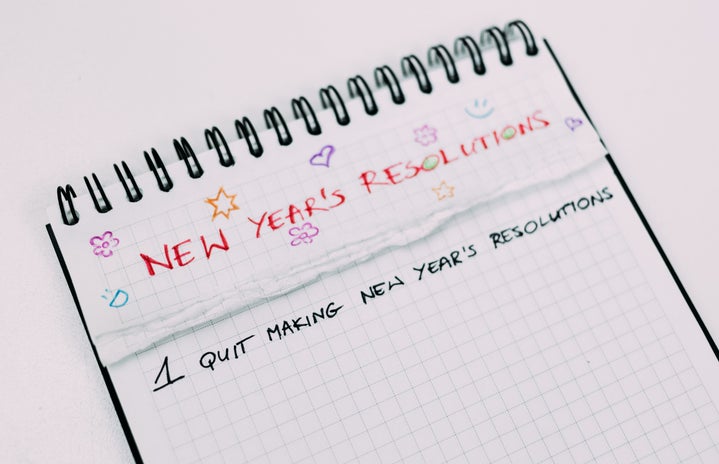At every entrance to a new year, we hear the saying, “New Year, New Me.” We see it on our Twitter feeds, Instagram stories and we are the ones who are doing the posting, retweets, or likes. At times, we say it unconsciously. It has become such a popular statement that it has created its own culture that is defined by but not limited to, personal development, prosperity in one’s careers, achieving goals, improvement in one’s well being and outlook on life, a shun towards negativity and toxicity, and the ending and creation relationship new ones. The mantra alludes to the fact that you are actively deciding to be an improved version of yourself because it’s a new year.
But how effective is the “New Year, New Me” mantra? How often do these words actually manifest into action and transform into change? I cannot count on one hand the many times that I have said, “I’m going to have a better attitude in the new year” or ” I’m going to eat healthier in the new year.” Still, my attitude may have stayed the same or gotten worse by the end of the year, and I haven’t made one healthy change to my grocery list. I began to notice this pattern of unproductivity and repeated return to or stagnation in old habits and mindsets, year after year, despite my “New Year, New Me” declaration. At some point, I became tired of not progressing. So, I asked myself a question that I challenge you to think about for yourself: “Do I ever follow through and make a real attempt to achieve this “new” version of myself each year?” Now, if you answered with a solid, indisputable “yes,” then chances are you can stop reading this article right here. However, if you answered with a sad “no” or unsure “maybe,” then ponder these questions:
Why do I easily forget or become sidetracked from my goals? Are my goals realistic, motivating, and achievable? Why do I even want to do something different for the new year? When I begin with a plan to be different this year, why do I never follow through? Why do I return to my old habits?
In my opinion, there are a few reasons why many of us do not follow through with our “New Year, New Me” declaration. We often go wrong in subscribing to the “New Year, New Me” culture in that we tend to mistake the simplicity of the sentence as an indication of how simple or automatic the creation of a new self will be. Creating a new self is not as easy as saying it, and because society doesn’t show us the process, we forget that there actually is a process. There has to be time relegated towards self-reflection and figuring out what areas in your life could call for rejuvenation or recreation in a new year. Also, there must be accountability and responsibility taken to enforce these new goals that one may have. From my experience, analyzing your interaction with individuals, your social media activity, your daily thoughts, and your routine habits is vital to understanding the needed improvement and degree of work that must be done. Many of us believe that just because a certain amount of time has passed, we have the ability to do a 360 automatically, but the that we hope for or want to change for will not magically fall out of the sky. We will not just wake up one day and become a new person. In order to become new, you must work to be. When deciding that you truly want to be a new version of yourself, it’s important to do it for yourself and not because of the pressure you may feel from outsiders. Also, it is a myth that calls for a new version of yourself every new year. The New Year, New me mantra becomes cliché and easily forgettable because your goals may not be specific to who you are and your circumstances. Many problems with the “New Year, New Me” culture is that it can be unrealistic because too many people may be after the wrong goal for the wrong reason, thus causing the “new me” to be desired by many but gained by a few.
The Take Away
To make these ideas seem less abstract and ensure that your “New year, New Me” mantra comes to pass, consider the four R’s: reflection, responsibility, routine, and realistic. First, reflect on what areas of your life need to be altered. Reflect on what you are unhappy with and wish to change, as well as what you are pleased with and wish to expand. Secondly, take responsibility in both the setting of your goals and accomplishing them. Be sure to take responsibility for when you stray away from your goals. Acknowledge that you slacked off by revising or dismissing the goal. Thirdly, set a routine to ensure that you will be able to adequately and efficiently work on each goal. Be sure that the routine is relevant to your goal. For example, if you wish to become more healthful in the new year, incorporate a workout or meditation session and a better meal into your diet. A routine offers your “New Year, New Me” mantra consistency. Lastly, be realistic because your goals will feel more concrete and accessible. Do not bite off more than you can chew. Give yourself time and sufficient room to grow. Even if the time needed is more than a year.
Remember, there can be a new you in the new year, but your habits and mindset determine the odds. Invest in the journey now so the outcome will be worthwhile later.


